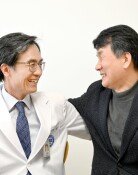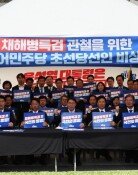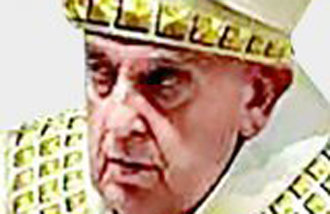Policy Development Foundation Opens
Policy Development Foundation Opens
Posted September. 29, 2006 07:05,
In celebration of launching the Korean Peninsular Advance Foundation (KPAF), a symposium was held Thursday in downtown Seoul.
Korea is facing a crisis due to denial of its own history, populist politics, failure in discovering new growth engines and collective selfishness, said Park Se-il, professor of Seoul National University and the director of the KPAF. Our foundation will become a think tank that not only seeks unity among the people but also study and educate rightful visions for national development.
Professor Park was a proportional representative of the Grand National Party (GNP) until March 2005 but resigned and returned to school in protest against the partys reaching a consensus with the Uri Party over the administration capital bill. His last public appearance was almost one and half years ago.
Park plans to make the foundation become Koreas brooking foundation. A number of prominent figures will serve the foundation as advisors, including Lee Hong-koo and Les soo-sung, former prime ministers, Kim Jin-hyun, president of the World Peace Forum, Kim Yong-jun, an attorney at Yulchon. Lawyer Lee Seok-yeon will assume as a director. The group comprises of some 200 experts in 18 areas, ranging from economics to culture. They will develop and provide policies to politicians in pursuit of making Korea an advanced nation.
Chief policymakers of four parties, including the ruling Uri Party, GNP, Democratic Party and Democratic Labor Party, participated in the discussion as resource persons and introduced each partys policies on 14 agendas.
In particular, chief policymaker Rep. Kang Bong-kyun of the Uri Party and Rep. Jeon Jae-hee of the GNP showed a wide difference in major issues.
In regard to approaching North Koreas nuclear issue, Kang said trust between the two Koreas is as important as international cooperation, while Jeon said international collaboration like the alliance with the U.S. is more important. In the meantime, Choi In-kee of the Democratic Party said the issue must be dealt with peacefully through diplomatic channels and the U.S.s sanctions and embargo against North Korea are unlikely to succeed and will only escalate tensions in the Korean peninsular.
They had very different views on the transfer of wartime command control. No one can deny the justifiability in regard to the retrieval of wartime operational control, Kang said. This is an agenda that should be left to defense and diplomatic experts to review and verify. It is not something that should trigger signature collecting campaigns or discussions to be halted.
In response, Jeon said Koreas security threat is increasing due to fabricated justifications called self-reliance. President Roh Moo-hyuns administration should not push it on a whim. The issue of regaining the wartime control must be thoroughly discussed and verified first. It must be carefully carried out after winning the hearts of the people.
In regard to growth and welfare, Kang said, As they are complementary to each other, we need to draw up strategies that promote the two at the same time. However, Jeon said, Growth creates new jobs and new jobs creates a better welfare system.
As to policies on real estate, Kang said, The government succeeded in curbing chronic speculative realty investment, while Jeon said, the government failed in stabilizing the price and the burden of the people have been added due to heavy taxes.
mhpark@donga.com
Headline News
- Korean president faces debate limitations unlike U.S. counterpart
- KEPCO's first quarter profits failed to meet market expectations
- Teenagers are left out of discussions about national pension
- 2 consultative bodies submit minutes regarding increasing number of medical students
- Woo Sang-hyuk's rivalry and friendship transcend borders







